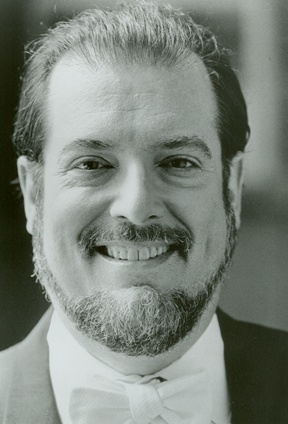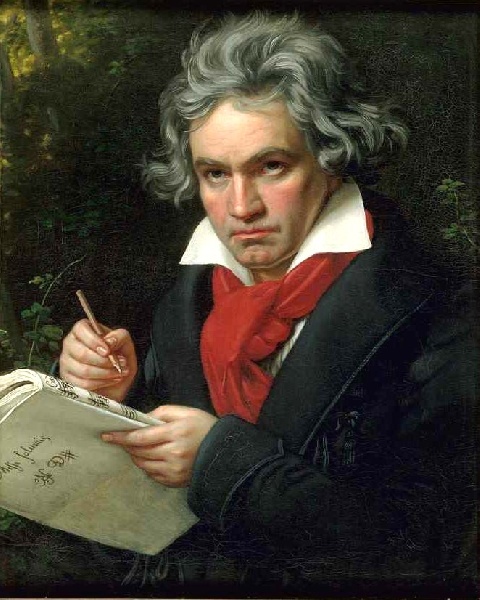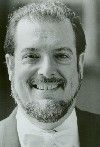Master Pianist Garrick Ohlsson plays Beethoven Sonatas at the Colonial Theater
Help! The Colonial needs a piano!
By: Michael Miller - Apr 02, 2007
Garrick Ohlsson, pianoColonial Theatre, Pittsfield, March 30, 2007, 8pm
Ludwig van Beethoven
Sonata No. 4 in E-flat, Op.7
Sonata No. 28 in A, Op. 101
Sonata No. 21 in C, Op. 53, "Waldstein"
Sonata No. 14 in C-sharp minor, Op. 27, No. 2, "Moonlight"
The lucky few who went to Garrick Ohlsson's recital at the Colonial Theater last Friday enjoyed a rare treat, albeit one of a decidedly odd sort. I have no doubt that Mr. Ohlsson is one of the great pianists in the world today, and I personally find his unpretentious, direct, but deeply penetrating and individual approach especially appealing. Friday evening I found my respect for his playing blossoming into admiration, not only for his musical gifts, but for him as a human being, as he struggled with the wretched instrument the Colonial has been leasing since its opening. Even though we are no longer living in the age of the great egos of the keyboard, I can imagine any number of pianists today who would have thrown up their hands at this piano, a medium-sized Steinway grand, and refused to play. The fact that Mr. Ohlsson stuck with it and gave his audience the best he could shows him to be a trouper in the finest tradition. What's more, the skill he brought into coaxing an acceptable sound from an instrument which lacked resonance in bass and treble and the overall sound of which was thin and clangorous, was truly astonishing. After years of concert-going, during which I have heard Rubinstein and Horowitz, Gould, Brendel, Kentner, Michelangeli, Rudolf Serkin, Pollini, Ax, and Bronfman, not to mention numerous young competition winners, I have never been so impressed with a pianist's technique.
After the initial shock, as Ohlsson's thoughtful reading of Op. 7 unfolded, I found myself forgetting about the shortcomings of the instrument. He even managed to produce some rather attractive sounds. For both Op. 7 and 101, he chose quite deliberate tempi, which helped him delve into the hidden felicities of Beethoven's writing. His broad, grand treatment of the substantial slow movement of Op. 7 was most compelling, and he achieved a wonderful sense of freedom in the concluding bars of the last movement. In spite of a sticking key, which he made no attempt to conceal, Ohlsson's highly individualistic reading of Op. 101 proved truly fascinating. I have never heard this sonata, one of Beethoven's greatest and most subtle, played in this way, and I can say that I found it truly revelatory. His emphatic handling of the trill at the very end of the piece gave this extraordinary music a new character.
After the break, Ohlsson launched into a fast, lithe, and bright reading of the great "Waldstein" Sonata. For me no work quite sums up the essence of Beethoven's middle period as the "Waldstein." I think this could have been a great interpretation of the piece, but it was just not possible to conceal the piano's defects in this muscular piece. The instrument seemed to sound worse and worse as the music progressed. (I imagine it was aural fatigue.) The "Moonlight" Sonata which concluded the recital fared slightly better, but the instrument just couldn't support Ohlsson's extremely deliberate tempo in the Allegretto or his fast one in the Presto agitato. As an encore he played the first movement of the Sonata Op. 79, adopting the deliberate tempo he often favors, with remarkable success.
Ohlsson's programming was especially interesting. He did not just repeat one of his programs from his Tanglewood series of the entire body of Beethoven's Sonatas, in which, however, he did pair Op. 7 and Op. 101 in the first half with other works in the second. His decision to follow the "Waldstein" with the "Moonlight" was unusual and effective. It is also true that few of us in the audience knew what the program was in advance, since the management at the Colonial did not announce the program in their rather scant publicity for the concert. I'd say this was a serious blunder on their part, because many concert-goers find a sense of security in knowing what music they are going to hear in advance. Mr. Ohlsson's Beethoven cycle sold out the much larger Seiji Ozawa Hall last summer, but Friday's audience at the Colonial was decidedly sparse. This was totally unnecessary, and the folks at the Colonial only have themselves to blame, if they have wasted this opportunity. Garrick Ohlsson is without a doubt the most important and popular musician to play in the Colonial since it opened last fall, and this should have been a sell-out.
The Colonial's acoustics were both lovely and merciless, as always. The theater is a very appealing place, and I'm developing an affection for it. Its intimate atmosphere added something unique to the evening. In the first half there were moments when the audience was dead silent and their concentration appeared to be intense, a feeling difficult to achieve in a larger theater. Unfortunately, later their concentration seemed more uneven, and I could hear a good deal of shifting about and fidgeting. This may have been the effect of the piano's assault on our ears or something else altogether.
I should add that the concert opened with a gracious address by David Fleming, the executive director of the Colonial, reminding us to turn off our electronic noisemakers and concluding with the story of the piano. The Colonial is ready to buy one of their own, and he solicited donations towards the purchase of a suitable instrument, which will obviously have to be a full concert grand, even in that intimate and live space. There, I assure you, is a worthy cause!
Web: http://homepages.nyu.edu/~mjm11/index.html
email: michaeljames48@gmail.com



